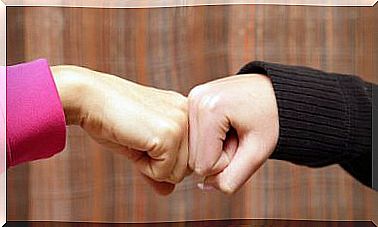Do We Value More What Costs More?

Hundreds of centuries ago, Sophocles said that ” success depends on effort. ” Today few doubt such an expression. But yes, being such an absolute sentence, questions arise around it. Do we value more what costs more? What price do we have to pay for the dreams that we strive to fulfill?
Actually, it is very easy to say “push yourself with all your might and you will achieve your dreams.” But what about then? Do we really value that achievement in its fair measure and will we always maintain that value? … And then, once we realize that perhaps the challenge is going to cost us more than we had anticipated, is it wise to throw in the rest? Let’s see what some experts say about what we value.
Do we value more what costs more?
I would like to begin by explaining the position defended by the neuropsychologist Sergio Lotauro. This specialist has spent years of work searching for answers about what we especially value and why. He has also done it with little people of a surprising age for which the participants in psychology experiments are used to having.
Many of his ideas are based on a curious study carried out with babies years ago. In it, the children were provided with two striking toys at a distance. The difference was that to reach one of them, there was no obstacle, while to reach the other one had to overcome a transparent acrylic barrier.

The curious fact is that although it may seem crazy, all the children tried to get the toy that was more difficult to reach. In fact, they were looking for any method to overcome the fence and achieve the coveted prize, no matter how much effort or energy they had to expend in the process.
Thus, we could ask ourselves if that passion for the difficult or the unattainable -which we show on some occasions- is our own decision or, on the contrary, it was in our own nature. Is such behavior implicit in our own DNA?
The lure of the forbidden
For Lotauro, the human being has a natural need to desire what he cannot have. According to him, we will act with an insistence, which can border on the reckless, to satisfy our need to feel that we are in control, or at least believe that we are.
For this reason, the psychologist provides various examples in which all of us, to a greater or lesser extent, can see ourselves reflected. It is the case of the famous. Our partner may be a physically precious person. Or maybe we see desirable profiles in the neighborhood, in the supermarket or on the bus. However, some stars of the cinema, music or even sports are totally irresistible to us, sometimes in an irrational and irrepressible way. It is the lure of the forbidden.
According to the psychologist, they are people we feel as unique and unattainable. Hence, they become an object of desire. We are attracted to the forbidden, to what we cannot achieve or that requires us to give our best.
Because Lotauro does not only refer to one’s own physical beauty. What about the lust for money? How many people dream of achieving success in the professional field? Do you not know individuals who would give everything to live in a way that at this moment, except for a great stroke of luck, is unattainable for them?
Do we value the price we pay for our effort?
Now, just because something seems unattainable does not mean that it is. Usually no one gets to where it is by chance or because it was given to them. It is clear that the higher the goal, the more complex it is to achieve. However, this is not why it is impossible. In fact, that someone did it is the best proof that it is possible.
At this point, I propose the following question, are we really willing to pay the price ? Some authors such as David Fischman or José D’Molina have worked in this field.
According to these specialists, before looking for a goal it is advisable to ask yourself certain questions. Do I really know what goal I am looking to achieve? Is it really valuable to me? Why am I so desperate for that achievement? Will the price be very high? Do I really have the decision to pay the enormous effort it will cost?

Because make no mistake, reaching a high goal requires great determination, but it also involves taking high risk. Also, think that whatever decision you make or have made, you are going to be the main responsible for it. On many occasions you will even be the only one responsible.
Therefore, both authors conclude by saying that everything that is worth, costs a price. Then it will be more or less valued, but what we are going to pay will weigh in the achievement. You have to pour in large doses of talent, time, money, knowledge and much more. Consider that there is one thing that most people who sense or know that they are going to die agree: true wealth is measured in seconds.
It is not surprising that the authors draw a clear conclusion. What costs the most is more valued, although not always or necessarily. On the other hand, what we value will not always last over time. In fact, you yourself will realize, if you look at the past, that there are achievements that you once valued in one way and today you do it in another. In this sense, we could also say that time acts with a certain justice, it usually enhances the goals but also the amount of effort invested, so that the sense of the balance rarely changes.
What does seem true, based on the studies cited in this article, is that we feel a certain attraction to the prohibited or the expensive. Thus, this natural inclination is a great breeding ground for motivation. However, let us not forget before deciding to undertake a project that its achievement will have a price that we rarely value consciously. Think that people live by illusion, but not only from it.









